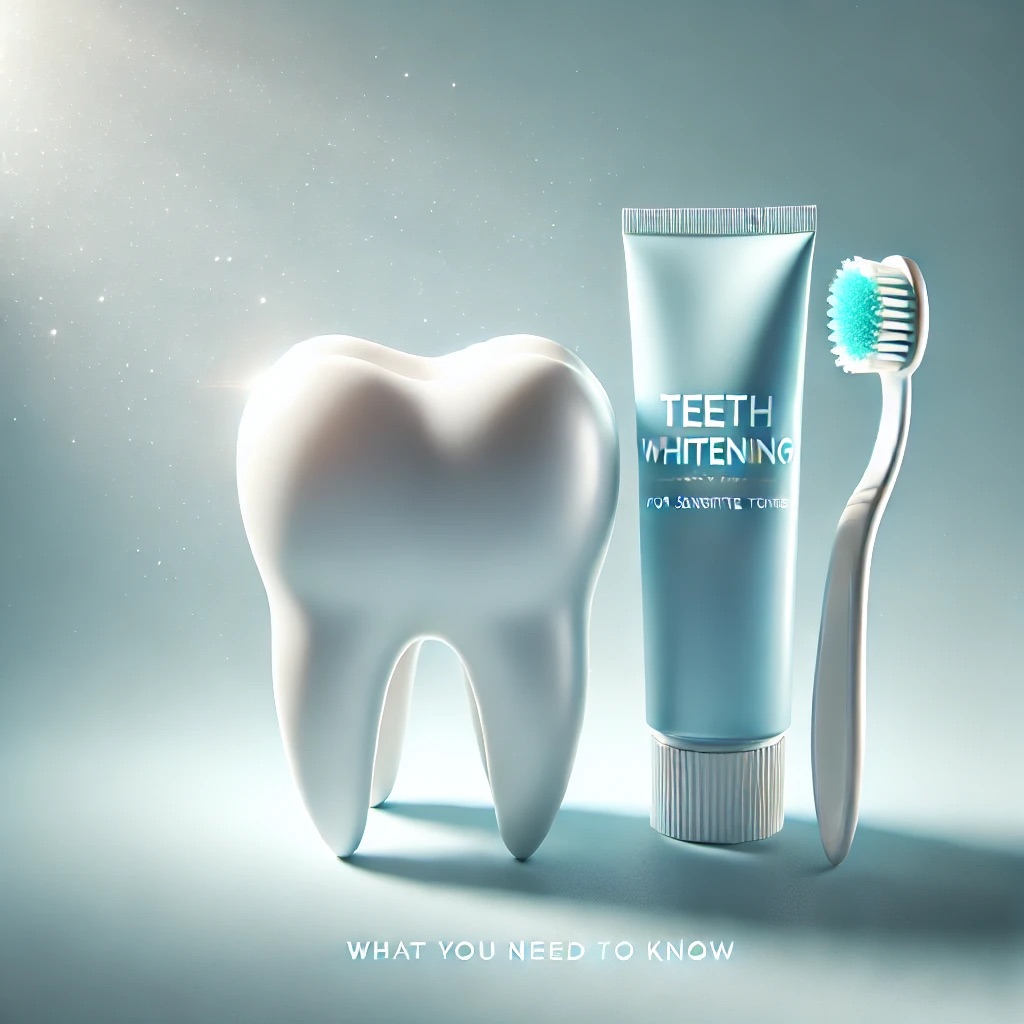Meta Description: Looking to whiten sensitive teeth? Discover the best teeth whitening methods for sensitive teeth, tips to reduce discomfort, and how to maintain a bright smile without irritation.
Summary
Teeth whitening can enhance your smile, but for those with sensitive teeth, the process may cause discomfort. In this guide, based on recommendations from our partner clinics, we’ll cover everything you need to know about teeth whitening for sensitive teeth—from choosing the right whitening products to minimizing sensitivity and maintaining long-lasting results.
Introduction: Teeth Whitening for Sensitive Teeth
Many people dream of having a whiter smile, but for individuals with sensitive teeth, the idea of whitening can bring hesitation. Tooth sensitivity can be triggered by certain whitening treatments, causing discomfort during or after the procedure. However, with the right approach, teeth whitening for sensitive teeth is entirely possible. This guide, based on advice from our trusted partner clinics, will help you choose the best whitening methods for sensitive teeth and provide tips to reduce discomfort while achieving a bright, beautiful smile.
Why Are Teeth Sensitive to Whitening?
Teeth sensitivity occurs when the protective layer of your teeth—the enamel—is worn down, exposing the underlying layer called dentin. Dentin contains tiny tubules that allow hot, cold, or sweet substances to reach the nerves inside your teeth, causing discomfort. Teeth whitening treatments, especially those using hydrogen peroxide or carbamide peroxide, can open up the pores in your enamel, making your teeth temporarily more sensitive. For people who already struggle with sensitivity, this process can exacerbate the issue.
The Best Whitening Options for Sensitive Teeth
Not all whitening products are created equal, especially when it comes to sensitive teeth. Here are the best teeth whitening options recommended by our partner clinics:
1. Whitening Toothpaste for Sensitive Teeth
Whitening toothpaste is a great starting point for those with sensitive teeth. These toothpastes contain gentle abrasives to remove surface stains without using strong bleaching agents. Many also contain ingredients like potassium nitrate or stannous fluoride, which help reduce tooth sensitivity.
- Tip: Look for toothpaste specifically designed for both whitening and sensitivity, such as Sensodyne Pronamel Gentle Whitening or Colgate Sensitive Whitening.
2. Whitening Strips for Sensitive Teeth
Whitening strips designed for sensitive teeth contain lower concentrations of hydrogen peroxide, making them less harsh on your enamel. These strips can be used for shorter periods, reducing the risk of irritation.
- Tip: Opt for brands like Crest 3D White Gentle Routine, which are formulated to be easier on sensitive teeth.
3. Professional Whitening Treatments for Sensitive Teeth
For significant discoloration, professional teeth whitening at a dentist’s office is an option. Dentists can customize whitening treatments based on your sensitivity levels and apply a desensitizing gel before and after the procedure to minimize discomfort.
- Tip: Discuss your sensitivity concerns with your dentist to ensure they use the gentlest methods available.
How to Reduce Sensitivity During Teeth Whitening
If you have sensitive teeth, taking steps to reduce discomfort before, during, and after whitening can make the process more comfortable. Here are some tips:
-
Use Desensitizing Toothpaste Before Whitening
Before starting any whitening treatment, use a desensitizing toothpaste for at least two weeks to block pain signals and reduce sensitivity.- Tip: Sensodyne Rapid Relief and Colgate Sensitive Pro-Relief are effective choices.
-
Limit Whitening Sessions
Use whitening products for shorter periods rather than extended sessions. For example, instead of wearing whitening strips for 30 minutes, try using them for 10-15 minutes. -
Use a Fluoride Treatment
A fluoride treatment before and after whitening can strengthen your enamel and reduce sensitivity. Your dentist may recommend this. -
Avoid Hot or Cold Foods After Whitening
Your teeth may be more sensitive to temperature after whitening, so avoid consuming hot or cold foods and drinks like ice cream or coffee.
- Tip: Stick to lukewarm or room-temperature foods and drinks for 24-48 hours after whitening.
Post-Whitening Care for Sensitive Teeth
After completing your whitening treatment, caring for your teeth is key to maintaining your results and preventing sensitivity.
-
Brush with a Soft-Bristled Toothbrush
Switch to a soft-bristled toothbrush to protect your enamel and reduce irritation. -
Continue Using Desensitizing Toothpaste
Keep using desensitizing toothpaste to manage any lingering sensitivity and make daily activities like eating and drinking more comfortable. -
Schedule Regular Dental Cleanings
Regular dental cleanings can help maintain your whitening results and prevent plaque buildup, which can contribute to discoloration and sensitivity.
Frequently Asked Questions About Whitening Sensitive Teeth
1. Can I whiten my teeth if I have sensitive teeth?
Yes, but use gentler whitening methods designed for sensitive teeth, such as whitening toothpaste or strips with lower peroxide concentrations. Consult your dentist for the safest options.
2. Will teeth whitening make my sensitivity worse?
Teeth whitening can temporarily increase sensitivity, but this discomfort usually fades after the treatment. Desensitizing toothpaste and fluoride treatments can help reduce sensitivity.
3. What’s the best whitening toothpaste for sensitive teeth?
Toothpastes like Sensodyne Pronamel Gentle Whitening and Colgate Sensitive Whitening are excellent choices. They whiten gently while providing relief from sensitivity.
4. How long does sensitivity last after whitening?
Sensitivity after whitening typically lasts a few days. Using fluoride treatments and desensitizing toothpaste can help speed up recovery.
Conclusion: Teeth Whitening for Sensitive Teeth
For individuals with sensitive teeth, achieving a bright smile doesn’t have to be painful. By choosing the right products and following these best practices, teeth whitening for sensitive teeth can be done safely and comfortably. Whether you opt for whitening toothpaste, gentle strips, or professional treatments, there are ways to minimize discomfort while achieving the dazzling smile you desire.
For more information on teeth whitening or to explore other dental treatments, visit Dentist Kusadasi for personalized care.

 English
English




















